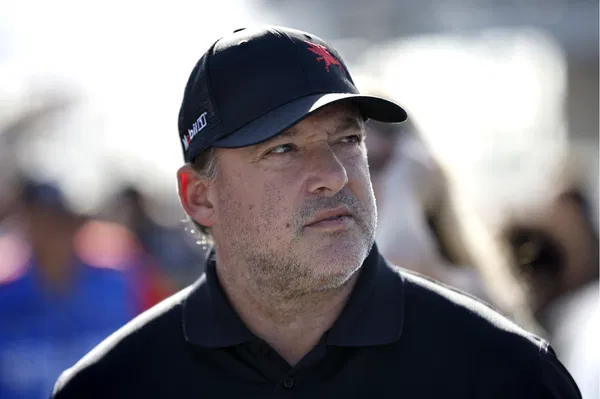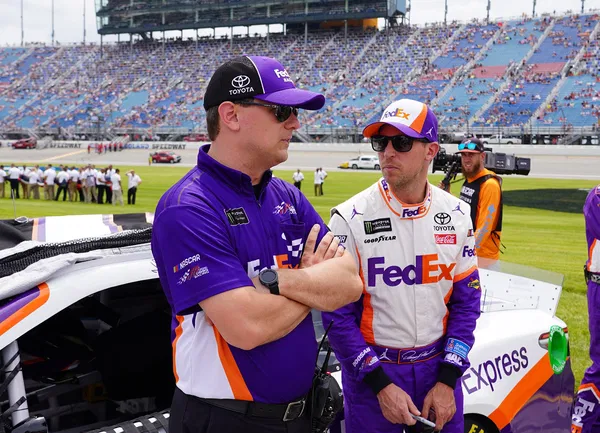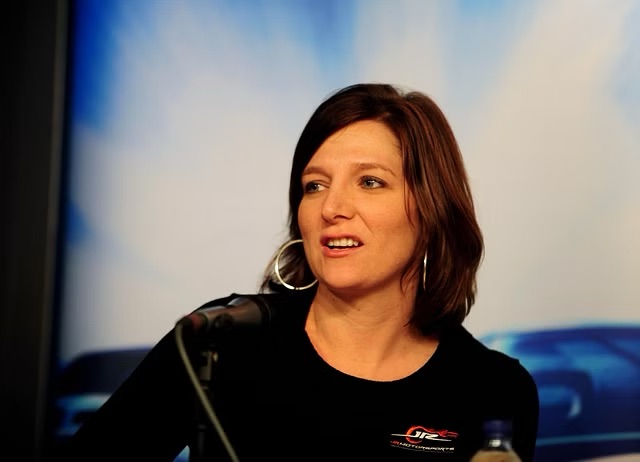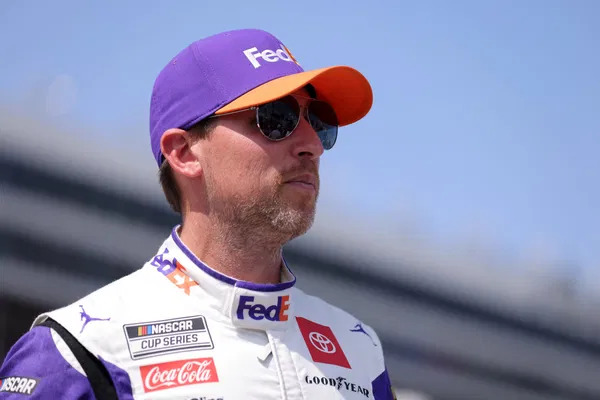In the realm of NASCAR, the rules and specifications for the Next-Gen vehicles are intricate and often contentious. With the absence of inner liners on tires and dollies, coupled with features like a rear diffuser, a lower ride height, and an enhanced brake system, these machines seem impressive on paper. However, when a car ends up stranded on flat tires with no way to move, the reality quickly shifts. This predicament became evident for Tony Stewart’s soon-to-be-disbanded race team during the recent race in Kansas.
Following a multi-car pileup on the very first lap, Josh Berry’s #4 car found itself incapacitated, sitting on four flat tires while trying to navigate the chaos triggered by Harrison Burton and Ty Dillon. NASCAR ruled that Berry’s race was over, despite the car sustaining no actual damage. This decision puzzled many fans and experts alike. The hosts of the popular podcast *Door Bumper Clear*, known for their candid commentary, posed significant questions about NASCAR’s judgment in this situation.
In the October 1st episode, podcast hosts Brett Griffin, Freddie Kraft, and TJ Majors discussed the weekend’s events, including Ross Chastain’s surprising victory, which became a hot topic as the series prepares to head to Talladega next Sunday. However, the focus quickly turned to Berry’s unfortunate incident. Despite a multi-car wreck involving several vehicles, NASCAR only disqualified the #4 car, preventing it from completing a single lap after a tow truck carried it back to the infield rather than to the pit stall. “This has to stop happening…” Griffin asserted passionately.
He elaborated, expressing the frustration of teams who invest countless hours and resources into their vehicles only to be sidelined for issues that seem trivial. “These guys spend three days of their lives, left their families behind during a hurricane, and spent a fortune building this car… only for it to end prematurely,” Griffin stated. In Berry’s case, the decision not to allow him to re-enter the race simply because of four flat tires left him incredulous. “Are you kidding me?” he exclaimed.
Freddie Kraft, the spotter for Bubba Wallace’s #23 car, echoed Griffin’s concerns, questioning why, three years into using this new vehicle design, teams still struggle to keep their cars on the track without succumbing to flat tires. He recalled the days when dollies were commonplace during race weekends at Iowa Speedway. “They must have lost them somewhere,” he speculated about their absence.
The reality is that NASCAR decided to eliminate dollies, citing the need to streamline procedures. The first driver to experiment with this new system was Ross Chastain, whose #1 car stalled during practice. NASCAR introduced a novel lifter system in its place, allowing teams to raise their cars using an air valve that inflates shock absorbers. This innovation theoretically provides enough lift to return a car to the pits for necessary repairs.
However, it appears the #4 team may not have had this system installed during the Kansas race. If they did, it might have been more prudent for NASCAR to transport the car to the pits instead of leaving it stranded in the infield. Griffin interpreted the rulebook, explaining that cars not hitting the wall are usually taken to Pit Road, while those that do are sent to the garage, essentially ending their race. This reasoning did not resonate with Rodney Childers, the #4 crew chief, who took to Twitter to voice his frustration, labeling the incident “the most screwed up thing I’ve ever seen or been involved with.” He insisted that their car simply required air in the tires, questioning why NASCAR had previously allowed cars in similar situations to return to the pit stall. “Why today?” he demanded.
Despite Childers’ grievances, no clear answers emerged. Kraft supported Childers’ outburst, noting, “Rodney is typically one of the more level-headed figures in our sport, so for him to say this is the worst thing he’s seen in 25 years should carry weight.” Childers has been a significant presence in NASCAR, and his frustrations reflect broader concerns within the sport.
Moving forward, Childers will assume the role of pit boss for Justin Haley at Spire Motorsports, a transition that could bring fresh opportunities. Meanwhile, Kraft remains determined to seek accountability for Berry’s team. He posed an important question: “Who is making these decisions?” His concern lies in whether race officials base their judgments on replay footage, as it’s not as though officials like Brad Moran or Elton Sawyer are out on the track assessing damage.
Kraft’s inquiries underscore the need for clarity and transparency in NASCAR’s decision-making processes. If a Cup Series spotter expresses confusion over protocols, it indicates a deeper issue within the organization. Kraft is adamant about pursuing answers when he encounters the officials responsible for these choices.
Moreover, this situation is not isolated. Just weeks earlier, a similar uproar erupted at Watkins Glen when NASCAR barred Ryan Blaney’s Team Penske Ford from returning to the pits for repairs after an early crash. While Blaney’s car did suffer steering damage, the contrasting response to Berry’s situation raises questions about consistency in NASCAR’s policies.
As the sport continues to evolve, these incidents highlight the urgent need for NASCAR to address its procedures and ensure that decisions reflect fairness and clarity, especially when they impact the championship contenders. If such discrepancies persist, they risk drawing ire from more influential figures within the sport than Childers himself.
Insider Exposes NASCAR’s Shocking ‘Robbery’ of Tony Stewart in Explosive Rant!”




